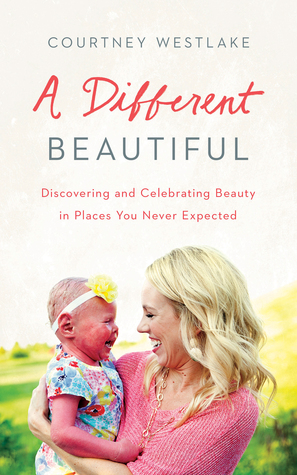Reading List October 2017

By Kathy Kuhl
Here’s my reading list for this month—a selection of books and articles (and a few other media) that I’ve enjoyed lately:

Books
 A Different Beautiful: Discovering and Celebrating Beauty in Places You Never Expected, by Courtney Westlake (Free on Kindle). When Courtney’s second child was born, Courtney and her hsuband were stunned by her disability, a rare genetic skin disorder that upended all their lives. But Courtney explains that when your life is upended, the insignificant falls away, and only the stable parts remain.
A Different Beautiful: Discovering and Celebrating Beauty in Places You Never Expected, by Courtney Westlake (Free on Kindle). When Courtney’s second child was born, Courtney and her hsuband were stunned by her disability, a rare genetic skin disorder that upended all their lives. But Courtney explains that when your life is upended, the insignificant falls away, and only the stable parts remain.
“Before our daughter was born, I wasn’t truly living: I was only thinking about living…. She came into our lives and pushed us out into… a world that was waiting for us to appreciate and celebrate all of the beautiful it offers us on a daily basis, sometimes in moments we are least expecting.”
Articles
“Have Smartphones Destroyed a Generation?” is the provocative title of Jeanne Twenge’s article in The Atlantic. A psychology professor at University of California at San Diego, Dr. Twenge has spent twenty-five years researching teen behavioral changes. The abrupt changes since 2012 resemble nothing she’s seen, and she’s researched trends going back to 1930. Why 2012? It was the first that over 50% of Americans owned smartphones, and with them, social media use rose and changed dramatically. The changes in teen behavior, beliefs, and mental health go much deeper than simply what kids are exposed to surfing the web. (Though that’s also a big concern.)
To those of us who fondly recall a more analog adolescence, this may seem foreign and troubling. The aim of generational study, however, is not to succumb to nostalgia for the way things used to be; it’s to understand how they are now. Some generational changes are positive, some are negative, and many are both….
Even when a seismic event—a war, a technological leap, a free concert in the mud—plays an outsize role in shaping a group of young people, no single factor ever defines a generation. Parenting styles continue to change, as do school curricula and culture, and these things matter. But the twin rise of the smartphone and social media has caused an earthquake of a magnitude we’ve not seen in a very long time, if ever. There is compelling evidence that the devices we’ve placed in young people’s hands are having profound effects on their lives—and making them seriously unhappy.
I’m now reading her book, iGen, on which this article is based.
“Mindfulness Would Be Good For You. If It Weren’t So Selfish” by Thomas Joiner, professor of psychology at Florida State University, in the Washington Post, August 25. This article addresses how the mindfulness trend misapplies mindfulness into another way to be selfish—and how to fight it.
Mindfulness, as popularly promoted and practiced, can itself be a distraction. It purports to draw on ancient traditions as an antidote to modern living. Yet it exacerbates the modern tendency toward navel-gazing, while asking us to resist useful aspects of our nature.
Great webinars and tools
At Understood.org, the live Expert Chats are a great resource. Recently I heard Dr. Thomas Brown speak on ADHD and emotions. You can watch archived Expert Live chats at any time.
I also love Understood’s “Through My Child’s Eyes” feature. It includes a child’s explanation, a video simulation of the child’s perspective, then an expert’s discussion. I like it, though you can only choose one condition at a time. (Lots of you, like me, have a child who has two or more conditions.) You’ll find the link on the left at the bottom of their home page.
What’s on your reading list? Want to recommend an article or book? Please mention in the comments below!

